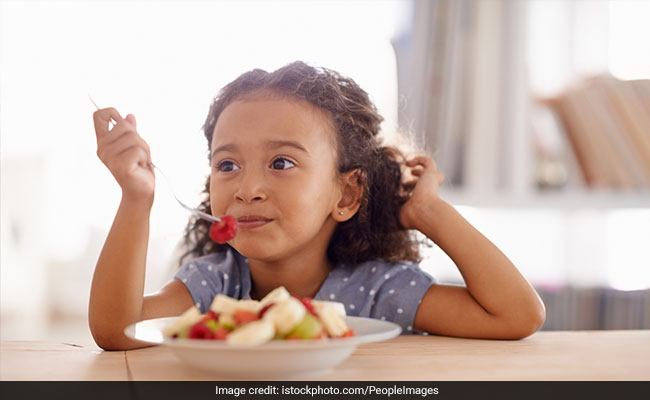Kids' diet impacts their development in a big way. The kind of nutrition they get from food and drinks shapes the way their body and brain grows and a healthy diet can ensure optimal development. Conversely, a poor diet in childhood may lead to a number of physical and cognitive impairments. This is why mothers are advised to take special care of their kids' dietary needs and requirements. A new study has shown exactly how a child's diet and water intake may impact her/his brain development and growth. The study is a preliminary one and is scheduled to be presented at the meeting 'Nutrition 2019' in Baltimore, United States of America.
The study was conducted among 850 elementary school kids in the US and it showed that kids whose diets had a higher percentage of snacks and sugar-sweetened beverages were more likely so score lower on standardised academic tests, as compared to kids who ate less of these foods. However, it said that unhealthy diets were not necessarily linked with lower cognitive test scores in kids. Furthermore, the study results suggested that children who drank more water or had greater habitual hydration were more likely to perform well in tasks requiring cognitive flexibility. The kids were also seen to have a better working memory when they drank more water.
The study showed that the kids' hydration levels were much better when they drank two and a half litres of water as compared to just half a litre per day. Researchers also studied the impacts of caffeine and L-theanine in kids with ADHD and showed that when the two were consumed together, the kids showed sustained attention, improved cognitive performance and a decrease in impulsivity, as compared to placebo. The study indicates that under-nutrition or malnourishment can affect the growth of a child and harm her development. A randomised control trial conducted among infants in 26 Indian villages showed that improvement in nutrition as well as learning intervention lead to improvements in kids' expressive language, visual reception as well as social-emotional behaviour.
(This content including advice provides generic information only. It is in no way a substitute for qualified medical opinion. Always consult a specialist or your own doctor for more information. NDTV does not claim responsibility for this information.)







